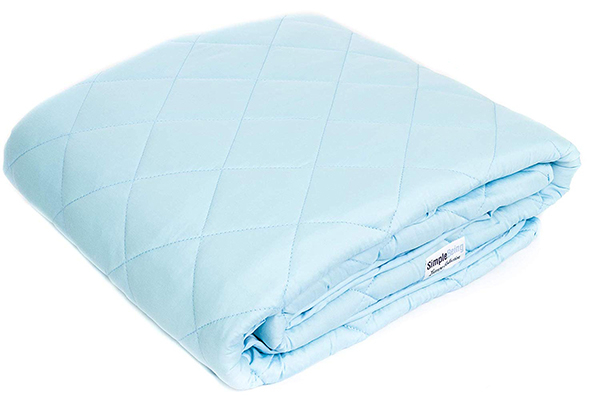Are There Really Any Benefits to Weighted Blankets?
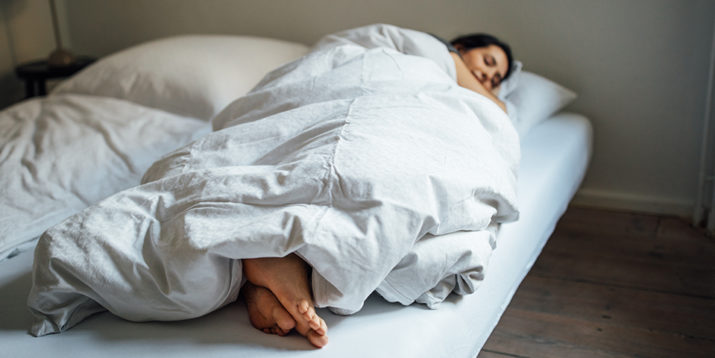
Ads all over social media tout weighted blanket benefits, but do they really help you fall asleep faster? And will sleeping with a weighted blanket help you stay asleep — and get enough sleep?
For those who love the feeling of burrowing under a blanket or making a cocoon of covers, weighted blankets can make them feel extra cozy.
But beyond the added comfort and warmth, what do they actually do?
Here, learn how weighted blankets work and the weighted blanket benefits you should know about.
What Is a Weighted Blanket?
A weighted blanket is a comforter filled with small objects such as pellets or beads (usually plastic or glass), giving it added weight that presses down on the user.
Some filling types are blended with material like cotton so that the blankets maintain a more traditional feel. They can weigh anywhere from 10 to 30 lbs. for adults, with child-safe options that aren’t recommended for infants.
Weighted Blanket Benefits
There are claims that weighted blankets can be helpful for everything from ADHD to fibromyalgia. But a lack of conclusive research makes such claims hard to validate with any degree of certainty.
Here’s what the current research shows.
1. Weighted blankets may help you fall asleep faster
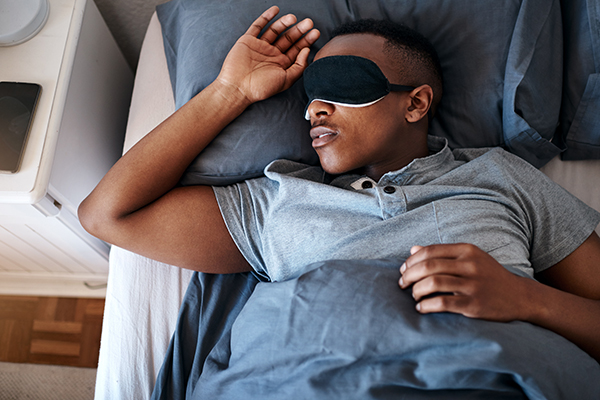
Need to stop those racing thoughts when your head hits the pillow so you can fall asleep faster?
A weighted blanket might help reduce the amount of time it takes to fall asleep.
In 2015, a study published in the Journal of Sleep Medicine & Disorders tested the effects of weighted blankets on a group of adults who suffered from chronic insomnia.
After a week of sleep tracking, 84 percent of the participants slept longer and woke up less during the night than they did with a normal blanket.
They also reported finding it easier to settle into sleep under a gravity blanket, and felt more refreshed in the morning.
2. Weighted blankets may help with anxiety
Using a weighted blanket has been shown to be a helpful tool in reducing anxiety.
One particular study published in the Journal of Clinical Sleep Medicine found that for people living with mental health issues, weighted blankets helped them stay asleep, have more energy during the day, and even reduced symptoms of anxiety and depression, says Dr. Nishi Bhopal, M.D., an integrative psychiatrist and sleep specialist at SleepAdvisor.org.
“Weighted blankets could be helpful for anxiety in kids and adults because of the deep pressure stimulation and effects on the parasympathetic nervous system,” adds Dr. Bhopal.
Just don’t choose one that’s too heavy.
Ellen Wermter, a board-certified family nurse practitioner and Better Sleep Council spokesperson, says that the best weighted blanket to buy should be about 10% of your body weight.
3. Weighted blankets may help with occasional sleeplessness
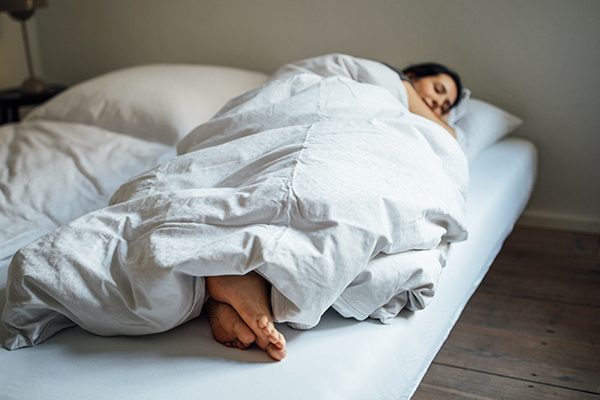
While some may report falling asleep faster with a weighted blanket, other weighted blanket benefits include improving insomnia symptoms.
One study found that a chain-weighted blanket (coated, weighted chains encased in soft fabric) was effective in improving sleep quality, both objectively and subjectively.
Weighted blankets may be a useful option as part of a holistic approach for occasional anxiety and sleeplessness, says Dr. Bhopal.
“However, there isn’t a lot of conclusive evidence yet, and more research is needed to understand if, how, and when weighted blankets might be useful.”
4. Weighted blankets may help restless legs
Restless leg syndrome (RLS) causes uncomfortable sensations in the legs, which prompts an irresistible urge to move them.
The pressure from a weighted blanket may help, due to the activation of the parasympathetic nervous system, says Wermter.
“When that is the case, they can be conducive to rest,” she explains.
“While I can only speak to the sleep topics…weighted blankets do help with RLS,” says Dr. W. Christopher Winter, president of Charlottesville Neurology and Sleep Medicine and author of The Sleep Solution: Why Your Sleep Is Broken and How to Fix It.
In fact, the Cleveland Clinic included weighted blankets in its list of doctor-approved home remedies for RLS.
Who Shouldn’t Use a Weighted Blanket?
“Those with sleep apnea or other breathing disorders where pressure on the chest may restrict the ability to get a deep breath” should avoid weighted blankets, advises Wermter.
And, adds Dr. Alex Dimitriu, M.D., founder of Menlo Park Psychiatry and Sleep Medicine, their main benefit might be a drawback at night.
“Also keep in mind that the heat generated under a weighted blanket may be detrimental to good sleep, as people sleep better when the body can cool down,” he says.
In general though, “if someone feels their weighted blanket is beneficial to their sleep, there is no reason not to use it nightly,” says Dr. Dimitriu.
How Do Weighted Blankets Help With Sleep?
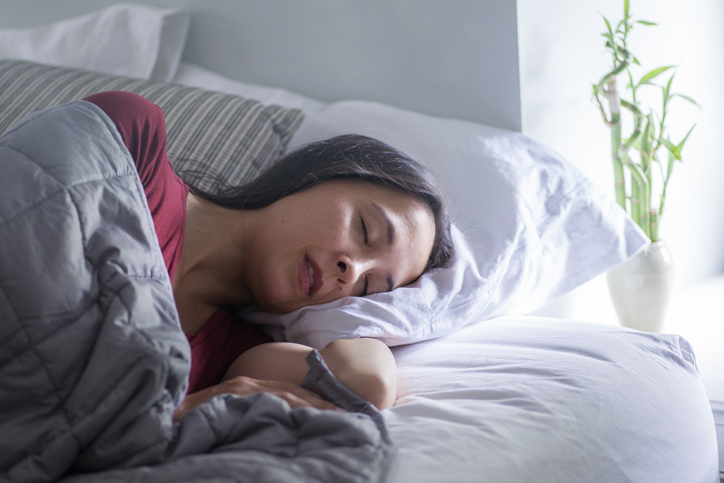
Weighted blankets can help with anxiety through a process called “deep pressure stimulation,” says Wermter.
“The pressure helps activate the parasympathetic branch of the nervous system, which is responsible for calmness and relaxation. Muscles relax, heart rate slows, and breathing becomes more regular.”
A weighted blanket might help you fall asleep faster and improve your overall sleep quality or, you might not have any of those weighted blanket benefits.
“It depends on the individual,” says Wermter. “Your brain is in charge of when and how you sleep. However…if you are in a relaxed state with little worry and anxiety, sleep may happen more quickly or feel deeper and more sustained.”
Best Weighted Blankets on Amazon
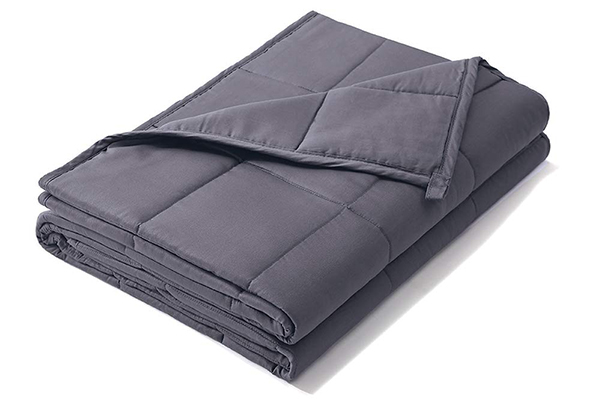
Weighted Idea Cooling Weighted Blanket (15 lbs.)
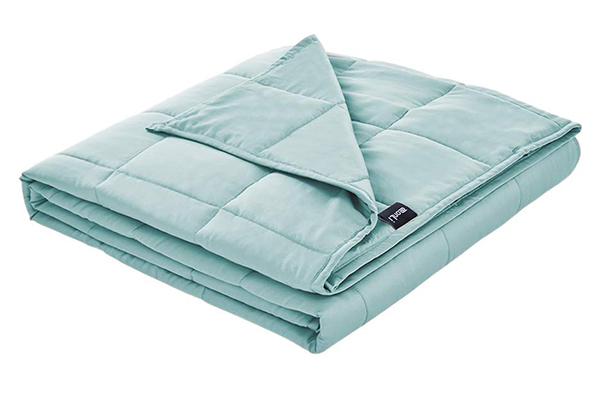
ZonLi Softest Weighted Blanket (12 lbs.)
